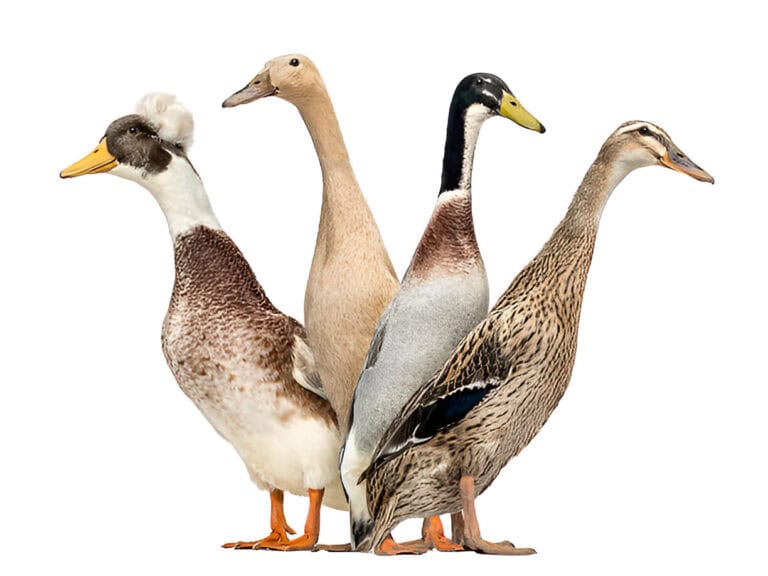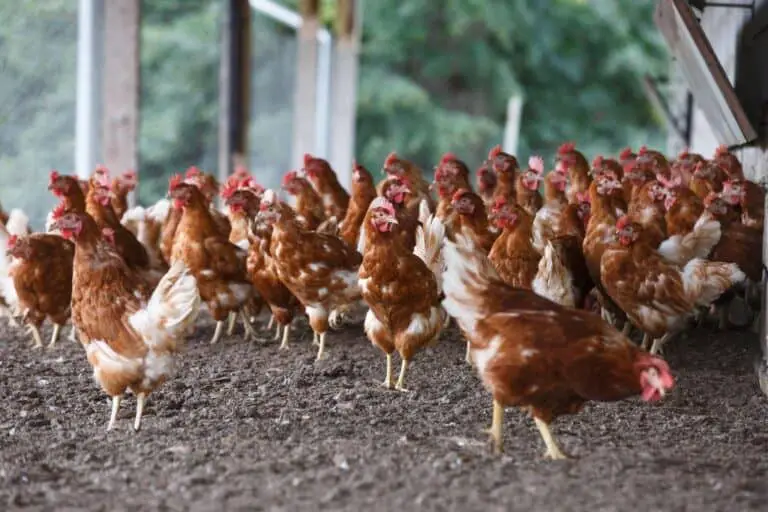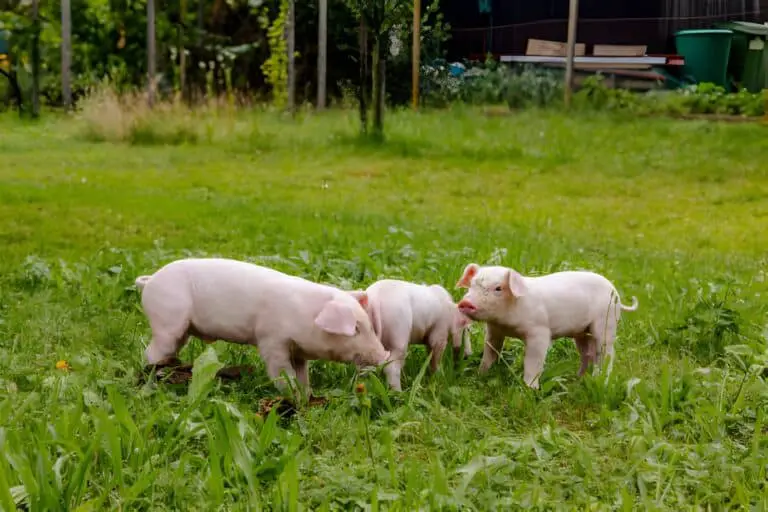Will Your Ducks Return to the Coop at Night? Here’s What to Expect
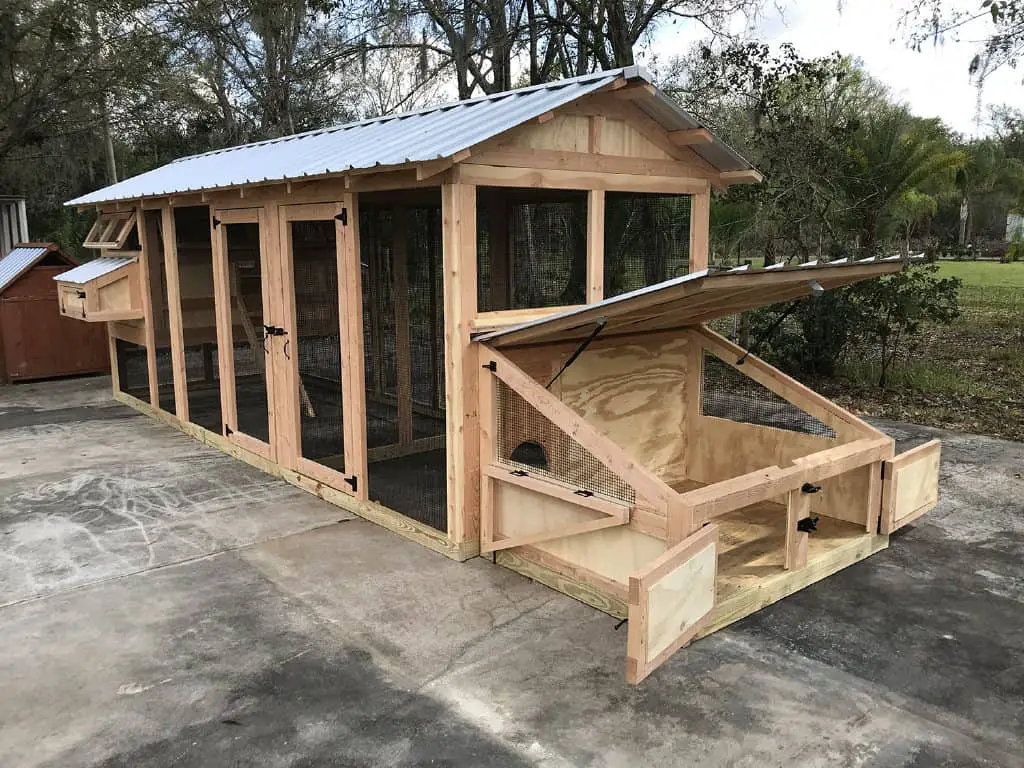
As a duck owner, I’ve spent my fair share of evenings watching my feathery companions waddle to their coop at dusk, often without a second thought. It’s one of those simple yet fascinating behaviors that made me wonder: why do ducks go back to the coop at night? And why do they seem to have such an ingrained habit of doing so?
Let’s dive into the reasons behind this fascinating nocturnal ritual and uncover what makes ducks tick.
Why Do Ducks Go Back to the Coop at Night?
The Safety Factor: Nature’s Instinct
When the sun sets and darkness blankets the land, it’s no secret that many animals—humans included—are naturally inclined to seek shelter. Ducks, much like other animals, have an instinctual drive to seek safety during the night. In the wild, ducks are vulnerable to predators like foxes, raccoons, and owls, which are more active at night. By heading back to the coop, ducks ensure they’re protected from harm.
In their natural habitat, ducks seek out safe, quiet places for rest, and that’s exactly what a properly built coop provides: a safe haven. Ducks instinctively know that staying in an enclosed space, where they can’t be easily reached by predators, is essential for survival. The darkness signals that it’s time to find shelter.
Routine and Habit: Ducks Are Creatures of Consistency
If there’s one thing ducks love, it’s routine. Every day, they follow the same path—out to forage and explore in the morning, and back to the coop when the sun dips low. This daily cycle forms a predictable rhythm in their lives.
Like us, ducks thrive on structure. Their internal clocks (circadian rhythms) are finely tuned to the natural light changes, helping them understand when it’s time to start winding down. And just like clockwork, they head back to their home as the evening approaches. It’s their way of signaling to themselves, “The day is over; time to rest.”
Group Dynamics: Safety in Numbers
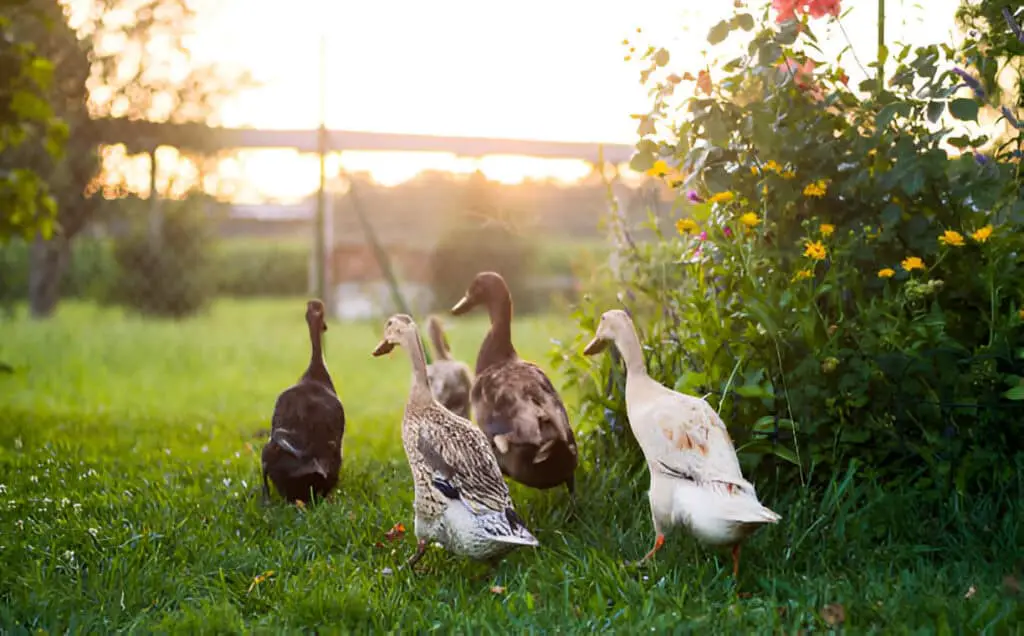
One thing I’ve noticed with my ducks is that they always seem to move as a group. Even when they wander off into the yard or explore the garden, they always circle back as a collective. This is part of their social structure—ducks are social animals and rely on each other for safety and companionship.
In the wild, ducks often migrate or sleep in large groups, which offers them safety in numbers. It’s the same in your backyard! When one duck heads back to the coop, the others often follow, relying on the flock’s natural instinct to stay close to one another. This behavior keeps them safe and creates a comforting sense of security.
| Check out: Do Ducks Need Water in Their Coop at Night? |
Does the Coop Need to Be Perfect for Ducks to Go Back?
While ducks are generally pretty good about heading back to the coop, the space where they sleep matters. Ducks have specific needs for their sleeping area, and if the coop doesn’t meet those needs, you might find that they won’t be as quick to return.
Here’s a checklist of what makes a good coop for ducks:
| Factor | Why It’s Important |
| Enclosure | Ducks need a secure area to prevent predators from getting to them. |
| Ventilation | Fresh air is crucial. Make sure the coop is airy but not drafty. |
| Comfortable Bedding | Soft, dry bedding makes for a cozy and inviting resting place. |
| Space | Ducks need enough room to move around comfortably while roosting. |
A poorly constructed or uncomfortable coop can deter ducks from going back at night, or worse, make them feel stressed out. But with the right setup, they’ll quickly learn that it’s their sanctuary, and you’ll see them heading back every evening without hesitation.
Nighttime Lighting: How Does It Affect Their Routine?
Interestingly, lighting also plays a role in whether ducks go back to the coop at night. Ducks rely on the natural daylight to guide their schedule. If they’re exposed to artificial light in the evening, they might stay out longer than usual.
This can sometimes lead to confusion. I’ve found that keeping the coop in a darker, more natural environment helps guide my ducks back home more easily. They’re not distracted by artificial light and instead rely on the setting sun to know when it’s time to head to bed.
Some duck owners use automatic coop doors that open and close at certain times. While these tools can help, they can sometimes throw off a duck’s natural instinct to go inside when the sun sets. Therefore, using natural lighting and allowing your ducks to follow their internal clock is often the best route.
How Can I Encourage My Ducks to Go Back to the Coop?
If you’ve ever had trouble getting your ducks to go back to the coop at night, you’re not alone. Here are a few tips to help encourage your ducks to return to the coop:
- Establish a Routine: The more consistent you are with letting them out and guiding them back to the coop at a set time each day, the better.
- Use Treats: Ducks love snacks! If they’re reluctant to head back to the coop, try luring them with some treats like corn or mealworms. They’ll associate the coop with something positive.
- Make It Inviting: As mentioned, a comfortable, safe coop is crucial. Make sure it’s spacious, well-lit (naturally), and stocked with bedding to make it an appealing resting spot.
- Close the Coop Door at Night: In the wild, ducks instinctively want to shelter when night falls. By closing the door behind them, you can ensure they stay inside and are safe overnight.
Do Ducks Need to Be Locked up at Night?
Ducks, like many animals, have a natural instinct to find safety and shelter at night. While they do not need to be “locked up” in the traditional sense, it is highly recommended to provide them with a secure environment, especially if you want to protect them from predators. In the wild, ducks roost in safe, hidden spots away from danger, but domesticated ducks may not have the same instinctive knowledge to avoid threats.
When keeping ducks as pets or on a farm, ensuring they have a coop to return to at night is crucial. A well-constructed, predator-proof coop can prevent animals like foxes, raccoons, and even dogs from harming your ducks. Additionally, keeping your ducks locked in their coop overnight helps them avoid the dangers of wandering too far from home or getting lost. It also allows them to rest comfortably and stay safe while the duck sleep at night.
Benefits of Locking Ducks in at Night:
- Protection from predators: Keeps ducks safe from potential dangers.
- Peace of mind: Reduces the risk of losing ducks to attacks.
- Health and safety: Limits exposure to harsh weather conditions.
In short, locking your ducks up at night is not only a way to keep them safe but also a responsible practice to ensure they thrive. A secure coop provides comfort, security, and a good night’s sleep for your feathered friends.
Conclusion: Why Ducks Head Back to the Coop
At the end of the day, ducks’ instinct to return to the coop at night boils down to safety, routine, and social structure. Their natural behaviors are rooted in survival and comfort, which is why they consistently head back to their secure spaces as dusk falls. By providing them with a comfortable, safe, and predictable environment, you’ll see your ducks happily heading home each evening, ready to rest until morning.
With this understanding of their routine, you’ll appreciate the calmness that settles over your yard as the ducks settle in for the night. After all, they’re creatures of habit, and their return to the coop is simply a testament to their instinct for safety and the comforts of home.

